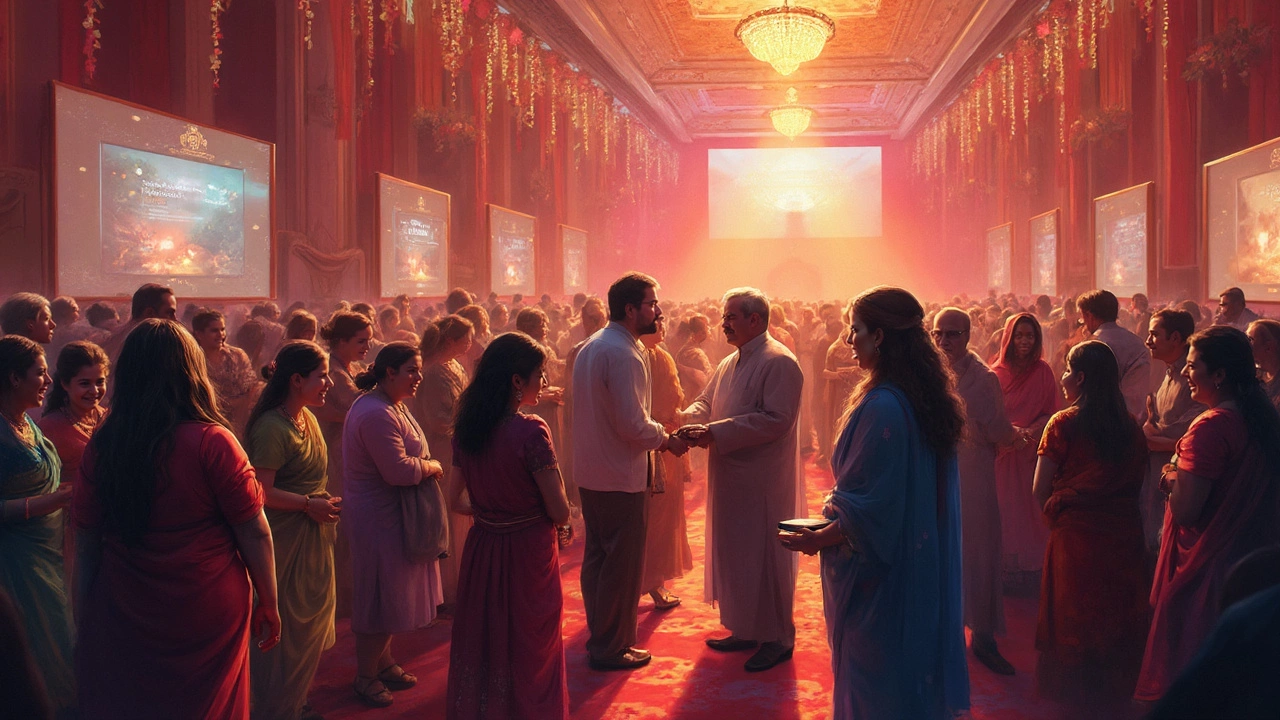
- Created by: Lydia Carmichael
- Completed on: 25 Feb 2025
- Categories: Events
Ever wondered why some fundraising events seem to fly by while others drag on forever? The secret often lies in the timing. Getting the event length just right can be a game-changer for keeping everyone excited and engaged. But how do you decide on the perfect timeframe?
First things first, let's talk goals. Depending on whether you're hosting a quick charity run or a glamorous gala, your objectives might differ wildly. These goals can greatly influence how long you should keep those doors open. You wouldn't want to tire folks out at a luncheon or have them looking at the clock at a formal dinner, right?
Understanding Event Goals
When planning a fundraising event, setting clear goals is like knowing your destination on a road trip. You wouldn't start driving without a map, so why host an event without knowing what you want to achieve?
Goals for fundraising events can vary a lot. You're not just aiming to raise money (though that's a big one); you might want to boost awareness for a cause, thank donors, or build community support. Knowing what you want will guide decisions on how to structure the event and, crucially, how long it should run.
Short Event Goals
For brief events like a pop-up fundraiser or a quick auction, focus on making an impact in a limited time. Here, the goal is often to create a splash and get people excited about a specific cause or release. A short, snappy event might last just a couple of hours but aim to leave a lasting impression.
Extended Event Goals
Longer events, like a full-day festival or an all-evening gala, have different aims. They allow for more comprehensive storytelling and deeper engagement with attendees. These events can offer workshops, talks, and socializing opportunities that require more time to unfold effectively.
How do you match your goals to the event duration? Consider the activities planned and how long it typically takes to keep guests interested. Are you aiming for back-to-back activities with little downtime, or is a leisurely pace more your style?
Pro Tip
Always check in with what similar events in your area have done. A quick look at community events can give you an idea of what works for your demographic.
| Event Type | Average Duration |
|---|---|
| Pop-up Fundraiser | 1-2 hours |
| Formal Gala | 3-5 hours |
| Full-day Festival | 6-8 hours |
Audience and Event Type
When it comes to organizing a fundraising event, who will be attending is just as important as what kind of event you're holding. Matching your event's duration to the audience's preferences can make a big difference in participation and enjoyment.
Identifying Your Audience
First off, who exactly are you inviting? If your target is working professionals, a cocktail hour might not run long versus a gala dinner aimed at high-profile donors. Meanwhile, a family-friendly fair might need to stretch longer to accommodate kids and parents exploring different activities.
Matching Event Types
Different event types naturally require different durations. Check out how they compare:
- Workshops or Panels: Typically best kept between two to three hours. Enough time to cover key points without losing attention.
- Dinners or Galas: Going longer—say, around four hours—is common here to allow for mingling, speeches, and fundraising activities.
- Run/Walk Events: These are usually short, sweet, and action-packed, often less than two hours, including ceremony and races.
Considering Age Groups
Age matters too! For example, older attendees or families with young children might prefer earlier events that don’t stretch too late into the night. Meanwhile, younger crowds might appreciate later soirées. Consider an informal poll or past experiences to gauge expectations.
| Event Type | Recommended Duration |
|---|---|
| Workshop | 2-3 hours |
| Dinner Gala | 4 hours |
| Family Fair | 4-5 hours |
By aligning the event type and audience needs, you'll set the stage for a successful fundraising event that leaves everyone happy and wanting more!

Program and Activities
Ever been to a fundraiser where things just seemed to drag? That's often because the program wasn't well-paced. An engaging lineup is essential for a memorable fundraising event. Planning out a mix of activities can keep your guests entertained and active, which also tends to fatten those donation jars!
Balancing Activities
First up, the key is balancing different types of activities. Mix it up with a blend of speeches, entertainment, and interactive activities. For example, you could start with some light entertainment as guests arrive, like a background band or magician, to set the mood. Following this with a heartfelt presentation can then put your fundraising goals in the spotlight.
If you're organizing a fundraising gala, inviting a local celebrity or a keynote speaker can add a special touch. Remember what Bob Smith, a renowned event organizer, once said,
"The magic is in the mix; blend fun with purpose, and you'll have them talking all night."
Time Management Tips
Keep slots short to maintain attention. Aim for 5-10 minute speeches, as anything longer might cause interest to wane. It's also a good idea to space out similar segments—mix up the serious with the playful, the informative with the interactive.
- Consider hosting a silent auction during meal times, which keeps the energy up even when folks are seated.
- Interactive sessions, like a short workshop or demo related to your cause, can be highly effective at keeping guests engaged.
Adjust your timeline based on the scope of your event. A small charity event might thrive in two to three hours, but a large gala might stretch to four or five.
Content Scheduling
Effective content scheduling is crucial. If you're having multiple events throughout the day, plan breaks aptly, allowing guests to move around, socialize, and resupply those drinks. Here's a quick example timeline to get you started:
| Time | Activity |
|---|---|
| 6:00 PM - 6:30 PM | Welcome reception & networking |
| 6:30 PM - 7:00 PM | Opening speech |
| 7:00 PM - 8:00 PM | Dinner & silent auction |
| 8:00 PM - 8:30 PM | Keynote speech |
| 8:30 PM - 9:00 PM | Live entertainment |
A well-thought-out program helps make sure your guests won't be checking their watches. Plus, it'll boost your chances of reaching those fundraising goals!
Practical Tips for Timing
Nailing the right length for your fundraising event is like finding the Goldilocks zone—not too long and not too short. So, let’s dive into some simple strategies to help you time it just right.
Consider Audience Attention Spans
People have limited attention spans, and these can vary by audience type. A Stanford study found that adult attention tends to waver after about 20 minutes, especially if nothing engaging is happening. So, plan breaks or interactive activities to keep energy levels high.
“Balancing entertainment with cause-related messages keeps smiles on faces and wallets open.”— Emily Chang, Event Coordinator
Keep Activities Tight and Engaging
Avoid filler. Think of an hour as roughly the perfect length for focused activities. If you've got speeches, games, and auctions, make sure they flow seamlessly to keep the momentum going. Chunk up longer talks with interactive sessions so folks aren’t checking their watches.
Match Event Type with Timing
Your event type dictates timing too. Galas can stretch over a whole evening, while smaller casual meetups might just need a couple of hours. Keep things flexible but always watch the vibe of the room—if folks start to drift, it might be time to wrap up.
Use Breaks Wisely
Scheduled breaks allow attendees to network or visit the restroom without missing key elements of the program. It’s smart to plan these breaks around major transitions in the schedule. Maybe throw in a mini food service to keep spirits high!
Plan for the Unexpected
Always, and we mean always, have a buffer time included in your schedule for unexpected delays. Whether it’s technical difficulties or a keynote that runs a bit long, having extra 15-20 minutes can save the day without cutting into important parts of your event.
By considering these practical elements, you'll be well on your way to hosting an effective and memorable charity event. So why not give these tips a shot and see how your next event unfolds?